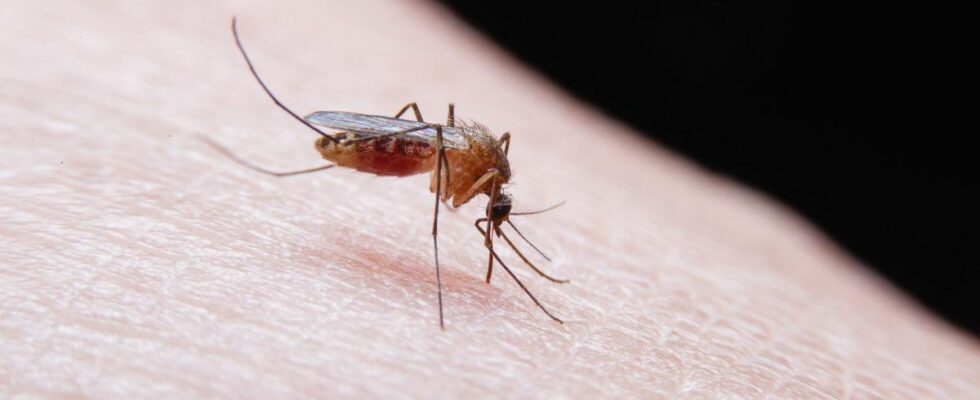Published on
updated on
Reading 2 min.
in collaboration with
Dr Gérald Kierzek (Medical Director of Doctissimo)
On August 16, Eastern Equine Encephalitis Virus, or EEE, was detected in a Massachusetts resident. Considered high risk, the virus is currently confined to 10 locations while the problem is treated. A pattern that could repeat itself according to our emergency physician, Dr. Gerald Kierzek.
Curfews, lockdowns, warnings… Drastic measures are currently being taken in the state of Massachusetts, and it’s not because of Covid, but because of a new deadly virus, called Eastern equine encephalitis, carried by mosquitoes.
30% of infected people die
Eastern equine encephalitis virus, also known as EEE, is a rare but potentially fatal disease. It causes headaches, fever, vomiting and seizures, and is estimated to kill about 30% of those infected (the rest suffer neurological damage). However, a human case of infection with this virus was detected on August 16 in an octogenarian in Worcester County, the first since the previous outbreak in the region, dating from the 2019-2020 period, which caused 7 deaths.
Emergency closures and sprays
Since then, 10 localities have taken extensive measures to avoid contagion, taking the risk very seriously. The city of Plymouth has decided to close “all its parks and fields from dusk until dawn” since August 23. The city of Oxford has banned all outings after 6 p.m. The Massachusetts Department of Health has officially classified 10 localities as “presenting a high or critical risk”. And aerial spraying is on the agenda. “against mosquitoes in certain areas of Plymouth County.” Of the “Truck spraying in parts of Worcester County” are also planned this week.
An event that will become more frequent
Should we be surprised by this breakthrough? Not really. According to the Washington Postmosquito season is getting longer in the United States, especially “due to climate change which affects the rise in temperatures and humidity levels which favor the proliferation of mosquitoes.” New risks would therefore be inevitable.
An opinion shared by our medical director, Dr. Gérald Kierzek, who sets the framework: “Overall, this virus, like others, is linked to global warming. These environmental issues that are happening are happening because of vectors that are currently changing the landscape. Diseases that were yesterday “elsewhere” are now becoming global, because people are traveling and because the climate is warming.”
Faced with this inevitable change, the doctor recommends that we too change our behavior.We must now become aware of the need for global veterinary and human health. This includes mosquito control, vigilance, reflexes that we used to have in the tropics and that we must adopt…”
But also to strengthen our immune system in the long term.
“This is a fight between viruses and human beings. If the body is weakened, the virus wins. But since we cannot completely eradicate either mosquitoes or viruses, it is on our defense system that we must play.”

